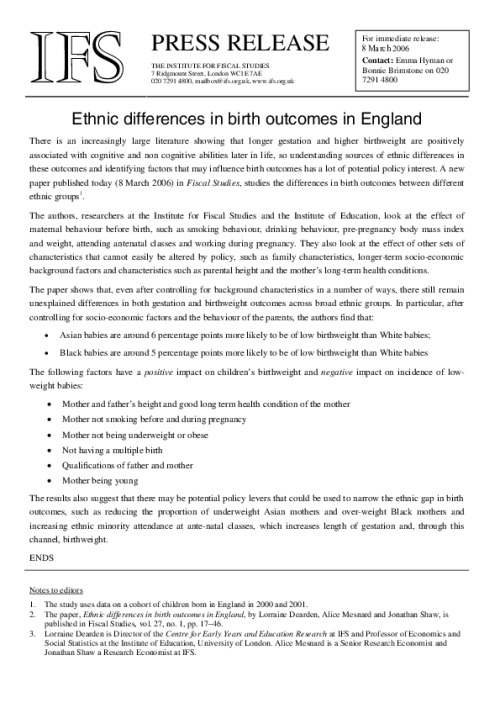There is also an increasing body of research that shows that increased birthweight and length of gestation is positively associated with cognitive and health outcomes later in life, independent of other socio-economic factors. This begs the question are there factors that explain differences in duration of gestation and birthweight and do these vary by ethnicity? There is epidemiological evidence that length of gestation and birthweight vary by ethnicity. This appears to hold even after differences in socioeconomic factors have been controlled for and a recent paper presents evidence that this may be in part due to earlier maturation of Black and Asian foetuses. Despite this evidence, a recent survey article by Savitz (2004) argues that these studies come far short of showing that these differences are purely genetic and argues that the "possibility of a modifiable social or behavioural explanation for these patterns remains highly plausible, but largely untested". In this paper we hope to look at this issue in regard to gestational age at birth and birthweight to see what may be driving ethnic differences in birth outcomes.
There is a growing literature on the sources of ethnic inequalities in a variety of outcomes including health, education, earnings and retirement in the UK. Most of this work, however, focuses on adult outcomes. This is in no small part due to data availability. In this paper we use the new Millennium Cohort Study (MCS) to look at ethnic differences in outcomes of children at birth. This paper is the first part of a
wider research agenda that will document sources of ethnic inequalities in early childhood outcomes using the MCS.










